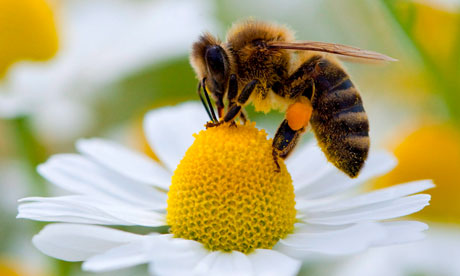A Real Buzz Kill
Why Bees are Vital for Humanity’s Survival
December 7, 2016
The decrease of the honeybee pollination has left many in fear for the global deficit effects that have yet to come. However, the possible extinction of bees has been widely overlooked.
“A term, Colony Collapse Disorder is a catch-all for unexplained losses. These losses are discovered as colonies emerge from winter hibernation. Despite popular proposals to explain the losses, CCD is best explained as having multiple causative agents,including the following; Mites, Viruses, Bacteria, Accidental poisoning, and stress,” environmental science teacher Carlton Colmenares said.
Bees have been dying at alarming rates which sparks a chain reaction to our food supply. The fact of the matter is that if honey bees become extinct this will equally reflect on the deficit number of pollinators, thus leading to a global agricultural food crisis.
“Our existence is based of off plant life and because plants can not independently reproduce they are limited to rely on other forces such as wind, water or pollinators. We depend on plants. Plants depend on pollinators. Hence the fact that we rely on pollinators. Now we are in a crisis especially if bees are dying off,” junior Jaime Urdaneta said.
Evidence has proven that honeybees are vital for regular daily existence yet every year the demise of honeybees becomes a larger issue. For example, research has stated that these underappreciated workers are the makers behind one-third of the global food supply. This includes almonds, apples, avocados, mangos and other everyday foods that are a part of many people’s everyday diets. Other agricultural sources that are threatened by the extinction of bees include cotton. Cotton is a source often overlooked but make up 40 percent of the world’s fiber.
“We are mostly responsible for pollution and habitat destruction and like many issues we are faced with today these are the biggest factors that can lead to the extinction of bees. So our reckless destruction has once again put us in a tight spot,” Urdaneta said.
Globally, without honeybees, the world can portend a loss of over 14 billion dollars. Since 1962, bees in the United States have experienced a 90 percent national decrease. The struggle to support the demand of products contribute to their growing extinction.
“When Europeans colonized the Americas they brought both the crops and the bees with them. The European bees found shelter and preferences due to humans’ assistance. Some hives swarmed into the wild and displaced many native pollinators while facilitating the success of familiar Old War crops. In short, we have come to depend on the European honey bee,” Colmenares said.
In today’s era, bees can serve as one of the most fundamental parts of our current society. The benefits of pollination is the foundation to the global agricultural products. Although research has slowly improved it has not reached the level of urgency needed to promote real change.


